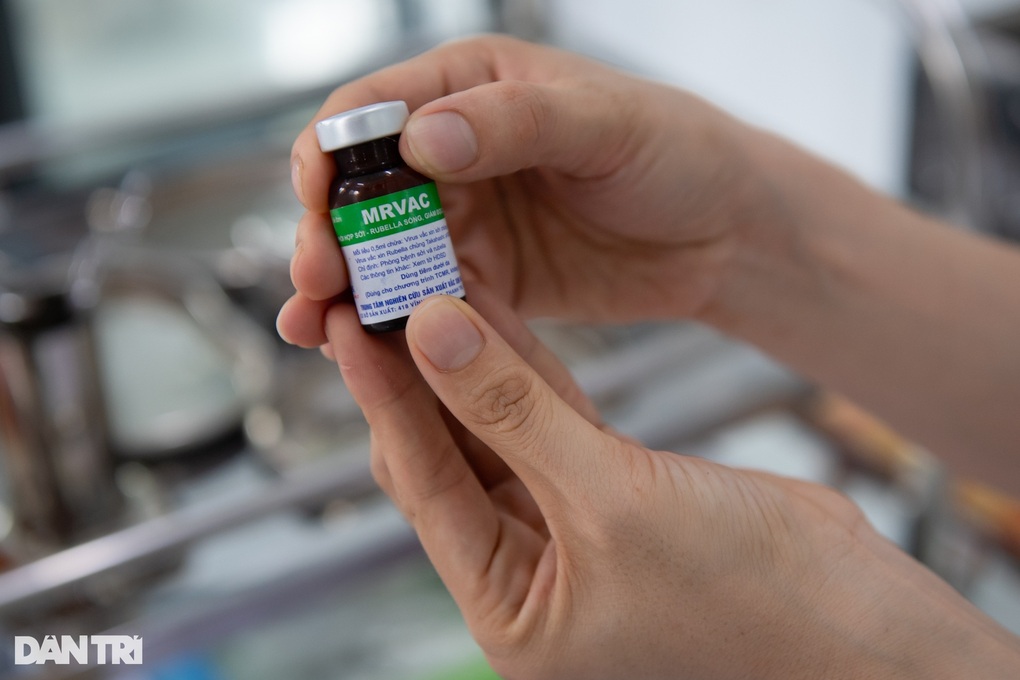Measles, a highly contagious disease, is causing significant concern in the community. Spreading rapidly and potentially leading to severe complications, the measles outbreak is currently complex, demanding vigilance and timely preventative measures.
Rapid Spread and Severity of the Measles Outbreak
Measles is extremely contagious, transmitted primarily through respiratory droplets. Approximately 90% of unvaccinated individuals will contract the illness if exposed to a measles patient. On average, one infected person can spread the disease to 12-18 others. Only when community immunity reaches at least 95% can the spread of the disease be effectively controlled.
Statistics show that, from the beginning of the year, approximately 40,000 suspected measles cases have been reported nationwide, including at least 5 deaths linked to the illness. Southern Vietnam has recorded the highest number of suspected cases (57%), followed by the Central region (19%) and the North (15%). The Central Highlands region also reported nearly 9% of the cases.
Measles can lead to serious complications such as otitis media, pneumonia, diarrhea, corneal dryness and ulceration, encephalitis, and even death. Currently, there is no specific treatment for measles. Vaccination remains the most effective preventative measure.
 Rapidly transmitted measles, and the Ministry of Health's 5 prevention recommendations
Rapidly transmitted measles, and the Ministry of Health's 5 prevention recommendations
Risk of Measles Outbreak and Recommendations from the Ministry of Health
Professor Trần Đắc Phu, former Director of the Department of Preventive Medicine (now the Department of Disease Control – Ministry of Health), emphasizes that unvaccinated individuals exposed to measles patients are virtually certain to contract the illness. This rapid transmission has been a concern for many, with the old saying, “passing by the bedside of a measles patient, one might contract the disease”, highlighting the risk.
History shows that measles outbreaks often recur in five-year cycles. Currently, Vietnam is in this cycle, making a measles outbreak highly likely.
To prevent the spread of measles, the Department of Disease Control, Ministry of Health recommends:
- Complete vaccination: Children aged 9 months to 2 years who have not been vaccinated or who have not received both doses of the measles vaccine, as well as other age groups (6-9 months, 1-10 years), should proactively complete their vaccination schedule as directed by the Ministry of Health.
- Avoid close contact: Avoid exposing children to those suspected of having measles. Wear masks in crowded places and wash hands frequently with soap when caring for children.
- Maintain hygiene and nutrition: Regularly maintain hygiene of the body, nose, throat, eyes, and mouth of children. Ensure adequate nutrition and keep children warm.
- Environmental hygiene: Daycare centers and schools should maintain cleanliness, ventilation, and adequate lighting. Regularly disinfect toys, learning materials, and classrooms with common disinfectants.
- Seek timely medical attention: If you notice possible measles symptoms (fever, cough, runny nose, rash), isolate the child and take them to the nearest medical facility for prompt diagnosis and treatment.
Conclusion
The measles outbreak is evolving and poses a significant threat to public health. Vaccination, adherence to prevention measures, and early detection of suspected cases are crucial to controlling and preventing the spread of measles. Individuals should actively learn about and implement preventive measures to safeguard their own and community health.



